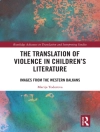The premise that intercultural contact produces intercultural competence underpins much rationalization of backpacker tourism and in-country language education. However, if insufficiently problematized, pre-existing constructions of cultural ‘otherness’ may hinder intercultural competence development. This is nowhere truer than in contexts in which wide disparities of power, wealth, and privilege exist, and where such positionings may go unproblematized. This study contributes to theoretical understandings of how intercultural competence develops through intercultural contact situations through a detailed, multiple case study of three conceptually comparable contexts in which Western backpackers study Spanish in Latin America. This experience, often ‘bundled’ with home-stay, volunteer work, social, and tourist experiences, offers a rich set of empirical data within which to understand the nature of intercultural competence and the processes through which it may be developed. Models of a single, context-free, transferable intercultural competence are rejected. Instead, suggestions are made as to how educators might help prepare intercultural sojourners by scaffolding their intercultural reflections and problematizing their own intersectional identities and their assumptions. The study is a critical ethnography with elements of autoethnographic reflection. The book therefore also contributes to development of this qualitative research methodology and provides an empirical example of its application.
Phiona Stanley
Critical Auto/Ethnography of Learning Spanish [EPUB ebook]
Intercultural competence on the gringo trail?
Critical Auto/Ethnography of Learning Spanish [EPUB ebook]
Intercultural competence on the gringo trail?
قم بشراء هذا الكتاب الإلكتروني واحصل على كتاب آخر مجانًا!
لغة الإنجليزية ● شكل EPUB ● صفحات 192 ● ISBN 9781317482239 ● الناشر Taylor and Francis ● نشرت 2016 ● للتحميل 3 مرات ● دقة EUR ● هوية شخصية 5013335 ● حماية النسخ Adobe DRM
يتطلب قارئ الكتاب الاليكتروني قادرة DRM












